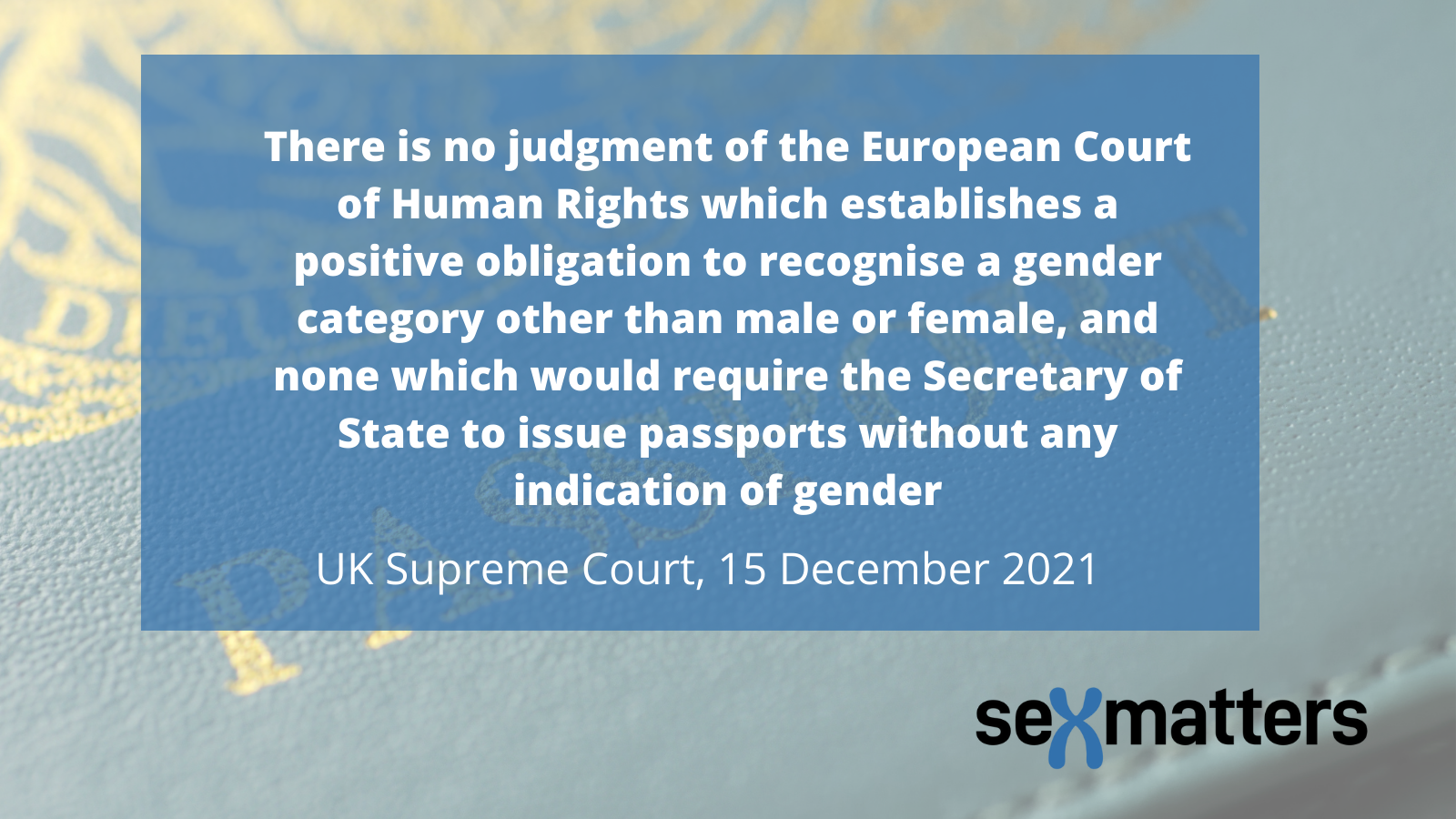X passports appeal dismissed

The Supreme Court has unanimously dismissed Christie Elan-Cane’s case for an “X” passport.
The judgment states
“There is no judgment of the European Court of Human Rights which establishes a positive obligation to recognise a gender category other than male or female, and none which would require the Secretary of State to issue passports without any indication of gender. “
Dealing with Elan-Cane’s argument that having to select “F” in applying for and using a passport is demeaning and distressing, the judgment says: “The purpose of providing that information is not to inform HMPO as to the applicants’ feelings about their sexual identity, and the applicants are not being forced to lie about those feelings.”
In response to the argument that the government should recognise Elan-Cane’s status as a non-gendered person because it had delivered treatment (a hysterectomy) via the NHS the judgment is clear that:
“The NHS did not recognise the applicant as being a non-gendered person: what it recognised was that the applicant was suffering from the medical condition of gender dysphoria, and it provided medical treatment to alleviate that condition.”
Sex matters in life and law
The judgment notes that legislation in the UK assumes that all individuals can be categorised as
“belonging to one of two sexes or genders (terms which have been used interchangeably).”
The judgment (at paragraphs 52 and 53) emphasises that sex matters in life and law, referring to legislation requiring the sex of a child to be recorded on their birth certificate, laws on marriage and succession to hereditary titles, criminal offences such as female genital mutilation, and the raft of legislation that assumes that only a woman can give birth to, or be the mother of, a child.
It also highlights the materiality of sex in service provision:
“A binary approach to gender also forms the basis of the provision of a wide variety of public services. The prison estate, for example, is divided into male and female prisons. Hospitals have wards where patients can only be of a single sex. Local authorities may fund rape crisis centres or domestic abuse refuges which offer their services only to women. Many schools only admit pupils of a particular sex. Much of this is underpinned by, or permitted by, legislation.”
Ultimately, the court finds that it was in the public interest to have a coherent administrative and legal system for recognising sex, and that this outweighs Elan-Cane’s interest in not having sex accurately recorded.
The Sex Matters response
Sex Matters welcomes this judgment. Executive Director Maya Forstater said:
“The Supreme Court has made a resounding statement that sex matters in life and law, and that legal and administrative systems need to reflect this.
We are delighted that this judgment recognises the public interest in having coherent systems for all, and does not allow that interest to be displaced by the wishes of a small minority who find their sex distressing.”
The judgment emphasises that sex is important as a biographical detail which can be checked against birth certificates and other official records when confirming someone’s identity. Unfortunately, the government is already permitting people to record self-identified gender in place of legal sex across many different public or official documents, including passports, driving licences and legal records. This is going to be a huge problem for digital identity systems.
The Secretary of State for the Home Office argued for the importance of coherent public and legal systems. There now needs to be a cross-government process to take stock of existing incoherence and establish clear principles for data users and providers.
